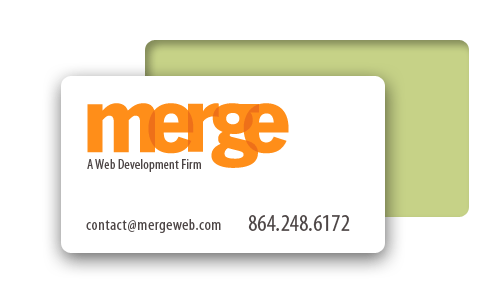Social Media: A Day In the Life of…
So how does Social Media (and the web) affect business on a typical day? Find out below as I document a relatively normal Saturday.
1:00 pm. I drop my daughter off at a birthday party somewhere in Simpsonville, SC. I have two hours to kill and I don’t know where I am, so I pull up Google Maps Mobile on my cell phone to find a Starbucks.
1:10 pm. I’m heading in the direction of the Starbucks and I’m thinking about what I’ll work on while I’m there. I have my laptop with me and will need Wi-fi. I then realize that I don’t think Starbucks has free Wi-Fi. Sitting at a stop light, I pull up the browser on my phone and search for “Wi-fi free Starbucks.” I find out it’s free for AT&T DSL customers. That’s not me. I look up from my phone and see a Panera Bread across the intersection. Bingo, they have free Wi-fi.
1:17pm. Coffee in hand, I fire off a tweet to Twitter: “[adamlandrum] is at Panera Bread because I don’t know if Starbuck’s wi-fi is free or not. Not offering free wi-fi these days is a bad business move.” (Social Media score: Panera +1, Starbucks -1).
1:19pm. I get these responses from Twitter almost immediately:
“sellphone @adamLandrum Starbucks is NOT free wi-fi, but Liquid Highway certainly is!”
(Social Media Score: Liquid Highway +1, Starbucks -2).
“prattlingon @adamlandrum Why should anyone pay for wifi when free wifi is so readily available. Read @ their wacky pricing plan here: http://bit.ly/v2XC”
(Social Media Score: Starbucks -5).
“squeaky starbucks is free for iPhone users, just on the iPhone though”
(Social Media Score: iPhone +1, Starbucks still -5).
5:30pm. My wife and I prepare to head downtown for the Sypmphony with PULSE in the Arts. We haven’t decided where to eat, and on the way downtown I pull up Google Maps Mobile again and simply search for “Restaurants.” American Grocery pulls up with 5 reviews and an average of a 4.9 stars. I click the phone number on my Blackberry and call to make sure we can get in.
(Social Media Score: Google’s Review + Google Maps + Integrated Phone Number = +5 for American Grocery)
6:37pm. I take a picture of my wife at American Grocery and send it as a tweet using TwitPic. 50 people view the photo from American Grocery within the hour.
7:30pm. We’re off to the symphony. I tweet about it, and get funny responses like “be sure to duck when you hear the gong” from Facebook.
9:15 pm. Intermission at the symphony. We slip out and head to Restaurant O. My tweet letting folks know our intentions, gets broadcasted to Twitter and Facebook using TwitterMail.
9:38pm. The wife of the manager of Restaurant O see’s my status on Facebook and know that we’re at his restaurant.
Claudia via Facebook: “You could send me a twit pic of hubby at O”
Never meeting Bruce, I locate the manager and show him the email from his wife on my phone via Facebook. It’s a little awkward, but I ask if I can take his picture. 51 views later…
(Social Media Score: Restaurant O +7)
10:14pm. My brother from Evergreen, CO comments on my status in Facebook:
“Facebook updates while on a date? Lame.” Todd Landrum at 10:14pm November 15
I respond: “Todd, welcome to social media. Business or Personal? This happened to be a business event turned into a date…so fb updates permissible :).”
Recap: Is Social Media personal or business? For the most part, I was simply chronicling a “personal” day/evening (we were going to a networking event PULSE in the Arts, so it was part business). However, these companies were affected, good or bad, by me simply recording my experiences: Panera, Starbucks, Liquid Highway, Apple, The Greenville Symphony, American Grocery and Restaurant O.
Bottom line:Through the convergence of mobile technology and social media, your company is going to be discussed, promoted, slammed, etc. (in real time). Are you ready for the groundswell?
